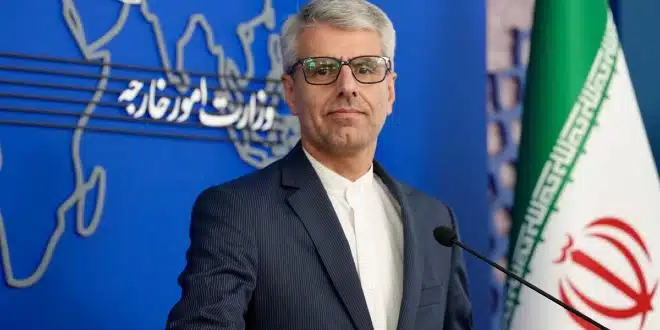Iran announced on Monday that it is preparing to submit a counter-proposal to the United States concerning ongoing nuclear negotiations, following its rejection of Washington’s latest offer as ambiguous and lacking essential elements. The diplomatic discussions, facilitated by Oman, aim to replace the 2015 Joint Comprehensive Plan of Action (JCPOA), from which the U.S. withdrew in 2018.
Iranian Foreign Ministry spokesperson Esmaeil Baghaei stated that the forthcoming proposal would be “reasonable, logical, and balanced,” emphasizing the necessity for Iran to benefit economically and normalize its banking and trade relationships before any sanctions are lifted. The U.S. proposal’s shortcomings, according to Tehran, include unresolved issues on uranium enrichment, export of enriched uranium, and sanction relief. Supreme Leader Ayatollah Ali Khamenei criticized the U.S. offer, reaffirming Iran’s intention to continue uranium enrichment, which he considers vital for the country’s nuclear program.
International Atomic Energy Agency’s Concerns
The International Atomic Energy Agency (IAEA) is holding a Board of Governors meeting from June 9-13 in Vienna to discuss Iran’s nuclear activities. A recent IAEA report highlighted Iran’s accumulation of 408.6 kilograms of uranium enriched up to 60%, a significant increase from previous levels. This enrichment level is close to the 90% required for weapons-grade uranium, raising international concerns. The report also criticized Iran’s cooperation, noting insufficient explanations for nuclear material found at undeclared sites.
Potential Repercussions and Diplomatic Tensions
Western nations, including the U.S., Britain, France, and Germany, are considering a resolution at the IAEA meeting to declare Iran in non-compliance with its safeguards obligations. Such a resolution could lead to the reinstatement of U.N. sanctions, utilizing the JCPOA’s “snapback” mechanism, which expires in October. Iran has warned that passing the resolution would be a “strategic mistake” and has prepared measures in response, potentially including further enrichment and reduced cooperation with inspectors.
Broader Geopolitical Implications
In a related development, Iran has claimed possession of sensitive Israeli nuclear documents and plans to release them, a move that could escalate regional tensions. The IAEA has acknowledged that the information obtained by Iran appears to pertain to Israel’s Soreq Nuclear Research Center. This development comes amid heightened scrutiny of Iran’s nuclear ambitions and its likely rejection of a new U.S. proposal.


